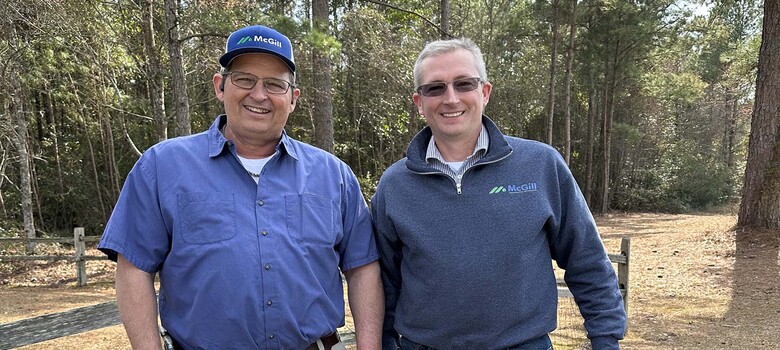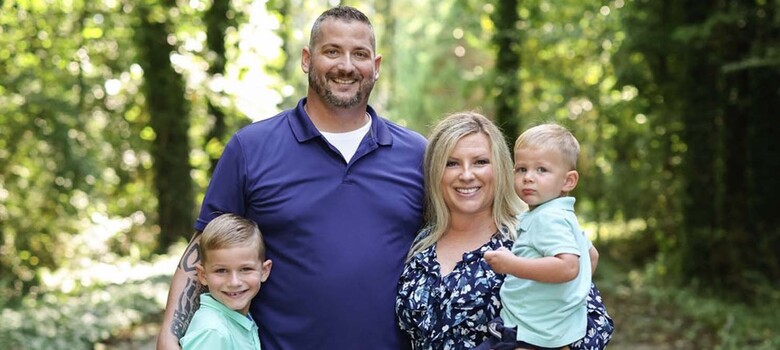 From the DukeHealth.org archives. Content may be out of date.
From the DukeHealth.org archives. Content may be out of date.
Two Liver Transplants Save Volunteer Firefighter's Life

Ray Brooks was at near death from liver failure when two liver transplants, and an experimental hepatitis C therapy, available only through a clinical trial, saved his life.
A firefighter is a lifesaver, a hero. But when volunteer firefighter Ray Brooks was near death from a failing liver, he needed a hero of his own.
Brooks had contracted hepatitis C from a blood transfusion as a baby, but didn’t discover he carried the virus until his 20s. By the time he was in his 30s he was very sick. The only thing that would save him was a liver transplant.
He turned to the organ transplant team at Duke, and was put on the transplant list in October 2005. Then he, along with his wife and young son, waited. “By the time a liver was available in May 2006, I was very sick, I was unconscious,” he says. “I woke up in the intensive care unit at and my wife told me I had had a transplant.”
One of the great difficulties in organ transplant is organ rejection, as the body fights to rid itself of the foreign invader. Yet the same drugs that were keeping Brooks’ body from fighting the new liver were also keeping the body from fighting the underlying hepatitis. Eventually, it returned, and his new liver began to fail.
He was placed on the list a second time, on Easter Sunday, 2012, and by June, received his second transplant. “The goal now is to eradicate the virus,” says Brooks, “because now a cure is possible, whereas it wasn’t before. There’s a new drug, and I’m hoping I’ll get into the clinical trial for it.”
In fact, Brooks did qualify for the trial, and the results could not have been better. Explains Andrew Muir, MD, a liver disease specialist at Duke, and Brooks’ doctor, “Despite taking care of himself, Ray was getting damage to the new liver and in danger of getting cirrhosis very soon. We were fortunate to have a clinical trial at Duke for patients who had received a liver transplant. He received two drugs in development for hepatitis C. He had a rapid response, and his liver stabilized. It was amazing to watch it happen and so rewarding to know that he does not have to worry about losing this new liver to hepatitis C.”
Brooks says he’s appreciative to so many for giving him the chance to see his children grow up—the transplant team, the donors, the donors’ families—all true heroes in his eyes.



